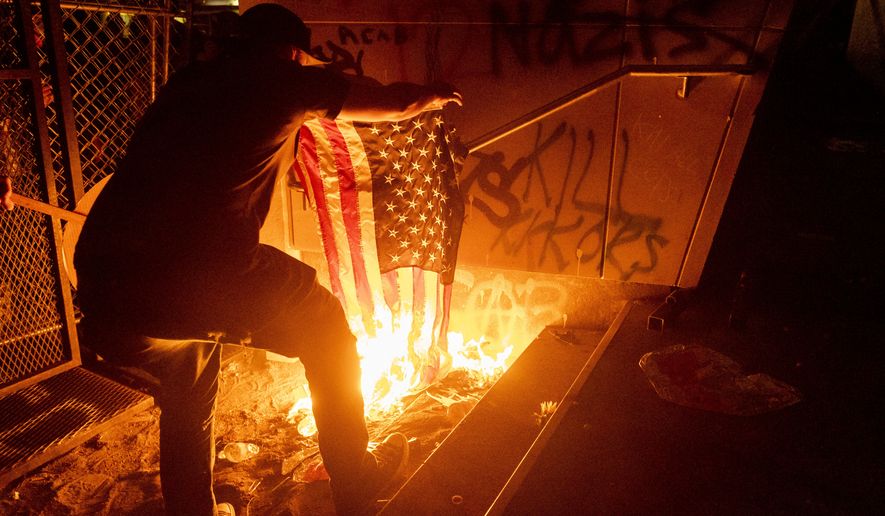OPINION:
Early on a July morning in 1918, the emperor of Russia, Nicholas Romanov, and the other six members of his immediate family were hustled into the basement of a house in Yekaterinberg and executed by the Bolsheviks.
This July, in towns across the United States, statues in public spaces have been dragged from their pedestals and destroyed or otherwise disposed of.
What do these events have in common?
That’s easy. The Bolsheviks killed the Romanovs for the same reason rioters were guided to destroy statues. In both instances, the things destroyed were physical manifestations of the idea that history, lived and shared experience, and values mean something to a civilization.
That idea is directly contrary to the worldview born in the “Enlightenment” in the 18th century that holds that reason alone is the pathway to all truth, and that experience, tradition, history, values, religion, etc. are impediments to progress.
That notion spawned a revolution in thought that has slowly scythed its way through Western concepts and action. For children of the Enlightenment, religion, tradition, values and all their associated activities and products are what stands between people and true freedom. Consequently, there has been a steady deterioration of religion as a participant in the public square, a diminishing emphasis on derivative values such as honor, patriotism and virtue, and a jaundiced eye turned toward experience.
In addition to attacking religion (think about the lockdowns), progressives destroy the past because they place no value on it. In a world in which reason is the sole reference point, history, tradition or received wisdom act only as impediments to progress.
But the unfortunate truth is that reason is at best an imprecise tool. Any approach that can lead one either to the destruction of all remnants of a nation’s history, religion and culture — including its people — or to infinite respect for life is suboptimal when it comes to making decisions.
Obviously, most of the rioters in 2020 have not read Voltaire. Most of them were simply settling scores or just bored.
Those in authority, however, like the executioners in 1918, understand the nature of this revolution. The mayors and governors who have stood aside and let the mayhem proceed know that destruction of the value system of a society — and its physical manifestations — are essential to the completion of the revolution.
What about conservatives? Why have they been silent through most of this? The reason why conservatives have failed to conserve much of anything is because almost all of their intellectuals play this game on the terms of the rationalists. They, too, have argued for years that reason alone will guide people to the right outcomes. Without reference to virtues such as sacrifice, love, honor, respect, tradition and family, such outcomes are unlikely.
This is immediately relevant to our current situation. Presumptive presidential nominee Joseph R. Biden is the last of the traditionalist Democrats: nominally Catholic, generally supportive of law and order, unwilling to jump completely into the grievance pool. But he is now the head of a party that is completely rationalist: hostile to religion, tradition and antiquated values; understanding that the past — good and bad — must be swept away before the new order can begin.
He, therefore, constantly straddles the divide by saying that some statues should come down, that some policing is problematic, that some allies (Israel) are expendable, that some borders should be open. He has only a limited comprehension of the origin or meaning of the pressures he faces.
At the same time, President Trump is the first explicitly and aggressively traditionalist president. He ran and has mostly governed as someone concerned about the integrity of the traditional nation, its values and the people who hold those values. He, too, has trouble comprehending (and therefore combatting) those who would destroy the past.
One thing is certain. Irrespective of the outcome of the November election, the fight has now been joined in earnest between the rationalists and traditionalists.
• Michael McKenna, a columnist for The Washington Times, is the president of MWR Strategies. He was most recently a deputy assistant to the president and deputy director of the Office of Legislative Affairs at the White House.




Please read our comment policy before commenting.